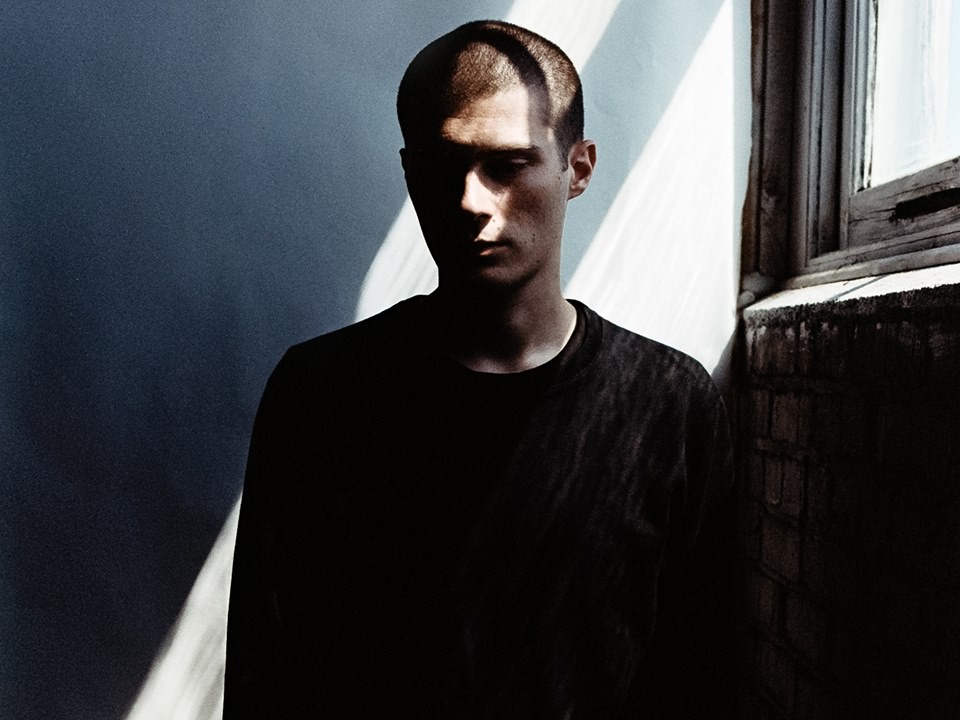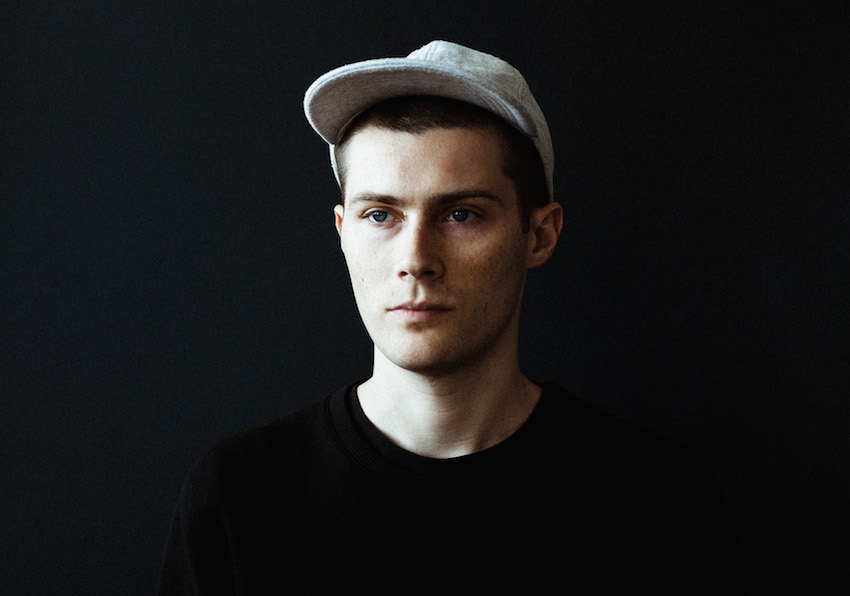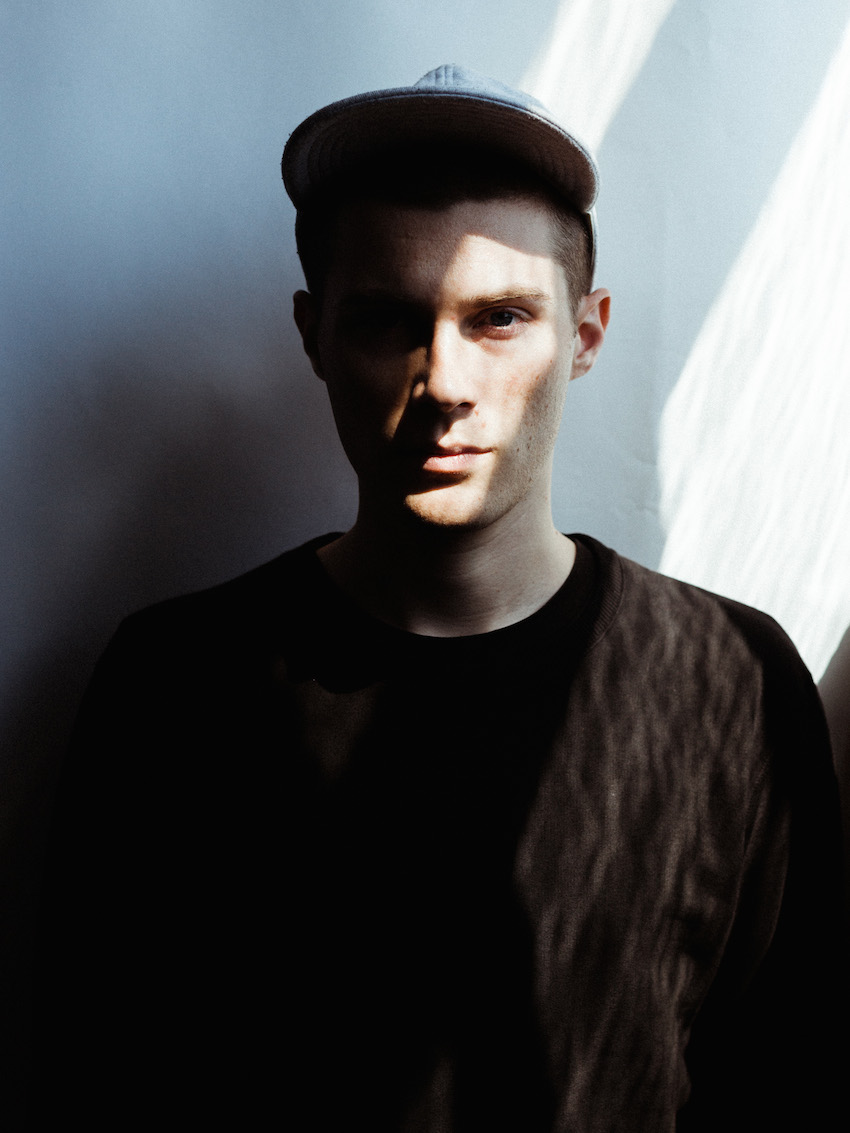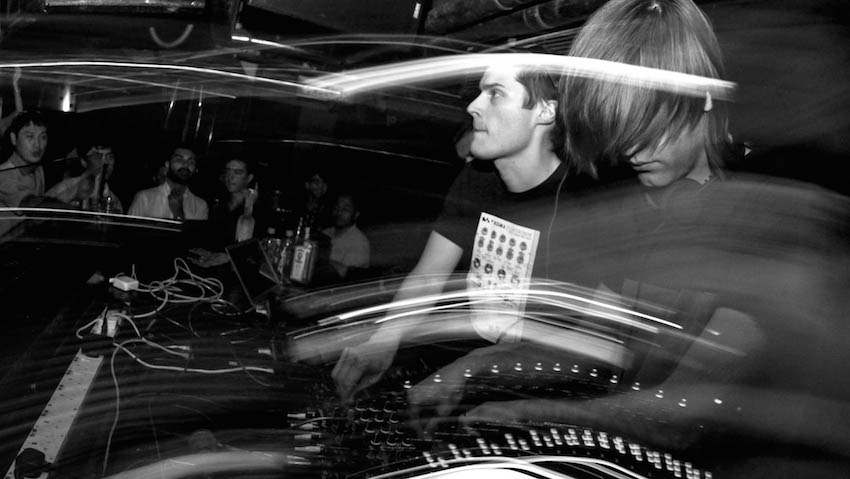RAC Doesn’t Create Music for Everyone
 Thirsty for JUICE content? Quench your cravings on our Instagram, TikTok and WhatsApp
Thirsty for JUICE content? Quench your cravings on our Instagram, TikTok and WhatsApp

When we had to go on a break from pop music back in 2010 — there were only so many times a person could listen to Justin Bieber’s ‘Baby’ or Ke$ha’s ‘TiK ToK’ without wanting to kick themselves in the face — we turned to SoundCloud for new music. Yes, there was a time when SoundCloud wasn’t as big of a bitch as it is to us now. Coming across a remix of White Arrows’ ‘Coming Or Going’ by an artiste collective named RAC, it then became our (or this writer’s, rather) introduction to indie-electronic music. André Allen Anjos, or RAC as he’s more popularly known as, is tenacious; he stays off the oft-frequented path to create music that’s different in comparison to what’s available in the market. By doing so, he has caught the attention of many artistes the likes of Death Cab For Cutie, Miguel, New Order, Lady Gaga, and many more.
Set to play during Indiego & Co.’s second anniversary a couple of weeks ago, JUICE seized the opportunity to speak to the Grammy-nominated producer about the impossibility of remaining true to oneself while staying on a mainstream level, creating music for a soundtrack, and his plan B should electronic music suffer the same fate as hair metal.
You upload new music very frequently, what do you do when you have a creative block?
Creative block happens all the time. I treat it as a job; I wake up in the morning and I go to work — which is in the other room.
Staying in a studio for four days doesn’t sound like too bad of job though.
It’s a lot of hours, it does get frustrating at times especially with creative stuff because if you’re feeling bad, that’ll affect you. You have to be in the right mindset, I think I’ve learnt how to manage that in my own life.
What’s your office environment like?
My natural habitat is a very quiet room with cats… it’s very calm, I actually like to record music at a low volume. I try to make it as easy going as possible (laughs). I think that helps me keep things creatively flowing but I’ve learnt how to just turn it on — I’ve been doing this since I was 15 years old, so you kind of figure it out. For example, if I really get stuck on something, I’ll take a break and go back to it in an hour. I’ll find in an hour after I listen to it, I’ll have some idea that’ll lead to other things; it has its compounding effect — once you get one thing going, other things pop up.
Do you nitpick on your previous work as per every creative head?
I am very critical of my past work but that’s part of it. I don’t regret any but…
You can be as cliché as you’d like to be.
It is kind of cliché thing to say, but you just learn from it. The goal is to keep moving forward, keep getting better, keep progressing as a musician – part of that is being real with what you did in the past.
So, why did you get into music?
This sounds absolutely terrible but basically to make myself happy.
Why is it terrible to want to make yourself happy?
What I mean by that is, so many artistes will say, “I do it for everybody,” but I’m trying to be honest, so I do it for myself. My music is the music that I want to listen to and that’s what it is — it’s taking all my influences, everything that I like and pushing it through this thing. I’m not trying to make any excuses but some people aren’t upfront about that, they’re like, “Oh, I do it for everybody.” Uh, no, you don’t.
A lot of artistes — yourself included — would advise newer acts to be themselves when pursuing a career in this field, which seems a little impossible on a mainstream level seeing that artistes are sometimes asked to compromise certain beliefs in order to accommodate sales. Where should an artiste draw the line?
That is a very tricky question and one that I’ve had to deal with a lot especially since I was signed to a major label [Interscope]. They never asked me to change anything but you feel that pressure because you walk into a building that has posters of Rihanna and Lady Gaga, and you’re like, “I have to live up to that.” The reason why I even signed with the label is because I felt that our goals were in line. I wanted to write pop music — that’s what I like — so I didn’t feel like that was cheating in any way. I guess there is an unspoken pressure to perform at that level, part of that is writing songs that compete in that space… it’s tricky. It’s something that I try not to think about, I just try to write music that I like.
And that seems to have been working out for you this long.
Yeah, it has just because I like pop music. If I didn’t like pop music and I tried to write it, I don’t think it’d work.
But before, you mentioned disliking certain types of genres because they were mainstream. Were you being a pretentious hipster at that time?
(Laughs) I probably said some stuff… there are certain aspects of mainstream music that I don’t enjoy.
Such as?
You’re getting me into trouble now.
We would never.
The one thing that I really don’t like is jumping on a bandwagon — doing stuff just because it’s popular. That’s my biggest issue. There’s a lot of that happening in mainstream music, so, I think that’s more of what I don’t like about it — the sort of inbreeding. The idea when it first starts, it is pure, then the more people copy it, it loses its value, and that’s where the quality goes down the drain; that’s more how I view it now that I’m a little bit older and not jaded (laughs). When I really think about it, that’s what I don’t like about mainstream music — it creates a cycle of repetition that ultimately leads to entire genres just falling from popularity because it’s been so overdone.

Yeah, like every genre has its peak — disco, thrash in the ‘80s, grunge, pop in the ‘90s, dubstep in the early ‘10s — do you see that happening for your brand of indie-electronica?
I think it’s started to some degree. Like I think that’s what’s happening in the US — electronic music is past its honeymoon phase. A lot of big electronic-heavy festivals are not seeing the same amount of numbers. I think it’s just coming back to earth because it went so high that people got used to that. We played at Ultra two years [ago], and the Green Room was on a mega-yacht.
Wow.
It’s like, “Come on guys, this is ridiculous.”
But it happened!
I know! I think it’s just coming back to reality because people have other interests; people grow and discover other music that they like for a while, but I don’t think it’s going to go away forever. It’s just slowing down [now], I think that’s good. It came down slowly too — I was worried it’d just burst. Like, you talked about disco in the early ‘80s, I don’t remember much of it because I wasn’t around for that (laughs), but from what I’ve heard it suddenly became “Disco sucks”.
Yeah, like what happened to thrash metal when Nirvana became popular.
Exactly, like all the hair metal guys were like, “What is this? We built our career on this,”
Do you have a plan B should this genre become unpopular?
I’ve always felt like I’ve been doing something slightly different, and I’ve had my foot in a lot of different worlds, so I’m not really worried. I feel like I’ll do something — I always try to experiment with different genres — not only to keep things interesting for myself but also to have that ‘backup’, I guess.
You’ve worked with some rad musicians such as Tokyo Police Club, Tegan and Sarah, and you’ve remixed everyone from White Arrows to Miguel to Bob Marley, but which artiste would leave you speechless if they called and asked for you to work with them?
Paul Simon, but that’s not going to happen (laughs). My mum didn’t have a lot of music in the house but Simon & Garfunkel — actually more Art Garfunkel — I’ve always really liked Paul Simon, Graceland and some of his albums around that time really stuck with me because of the style. I’ve gone through many, many phases (laughs).
What’s your favourite phase?
I was into metal for a very long time.
Yeah, we read that you were in a metal band.
In high school. It was probably the most fun I had performing live — playing metal is on such a different level in comparison to anything I’ve ever done. It’s so intense especially when you get a really rowdy crowd that is into it. It’s dangerous, you don’t know what’s going to happen, which makes it exciting. It was a really fun phase.
Which band got you interested in metal?
Meshuggah. It’s very technical and nerdy. I was a guitarist, so I looked up to that and I wanted to learn it. I liked it because it had a technical aspect.
So why didn’t you venture into being a rockstar instead of a DJ?
I actually sort of fell into DJing, it wasn’t a dream of mine or anything. I liked electronic music but I never even went to clubs — the first ‘real’ club I went to was when we were booked to play there (laughs). I maybe went to one or two when I was growing up but I gravitated to it because of the music, not the culture, so I don’t have any crazy rave stories.

You didn’t want to make club-music though, right? But now your music is being played at clubs. How do you feel about that?
I guess I had done enough club-orientated music… now that I think about it, I think I was just at the right place at the right time. Club music started becoming a little more popular and accessible, so I got to mix the songwriting with dance music, those worlds kind of collided a little bit and it took off from there.
You’ve composed a score for the game Master Spy — what’s the process like in regards to creating music for a videogame soundtrack?
I’m very into videogames — you know when I was telling you about taking an hour break? That’s what I’m doing (laughs). I grew up with videogames, I’ve looked up to soundtracks — it’s been a big part of my life — it’s always been kind of a dream of mine to do that. I have a friend from college that started working on this game — he had a different composer in mind but that guy stopped replying emails, so it was a perfect time. It was a very fun experience because you’re working with a different set of problems.
What are the elements you need to consider?
Especially for videogames, you have to think about repetition. I wrote 9-minute pieces, they’re all interconnected but you have to keep it interesting, you can’t stay in the same thing for that long — especially with that game specifically because you’re constantly dying, so you have to start over, just trying to keep that interesting and not annoying.
What about movies?
It’s a whole other set of problems with movies. You have to think of their emotions, down to the technical side of it where you want to keep the music in the lower-ranger so it’s not louder than the dialogue — very practical things that you wouldn’t ever have to deal with in normal songwriting. This goes back to what I was talking about earlier regarding keeping things interesting and doing different types of projects —especially for a working musician, it keeps things going.
How many more times do we have to listen to Strangers until your next full-length album? We mean, we’re not impatient but two years is long enough of a time.
(Laughs) I’ve been doing this singles thing for a second, I’ve been thinking about doing some EPs, then work my way up to an album. It’s always in progress, I’m always working on stuff — I think I’m sitting on 40 new songs, so I’m trying to figure out what to do with them ‘cos albums are especially very sacred to me. Even if the entire world has moved on to only listen to singles, an album experience is very important to me — that’s something that just takes time. I wrote 50 to 60 songs for Strangers, then trimmed it down [to 16].
Was that painful to do?
It hurts to throw away stuff but it’s part of the process. Not everything you write is going to be good; you have to pick the best and make it work with each other.
RAC headlined Indiego & Co.’s second anniversary on Saturday 9 April ’16 at Ace @ Zouk.
Follow him on SoundCloud here.


 Get Audio+
Get Audio+ Hot FM
Hot FM Kool 101
Kool 101 Eight FM
Eight FM Fly FM
Fly FM Molek FM
Molek FM